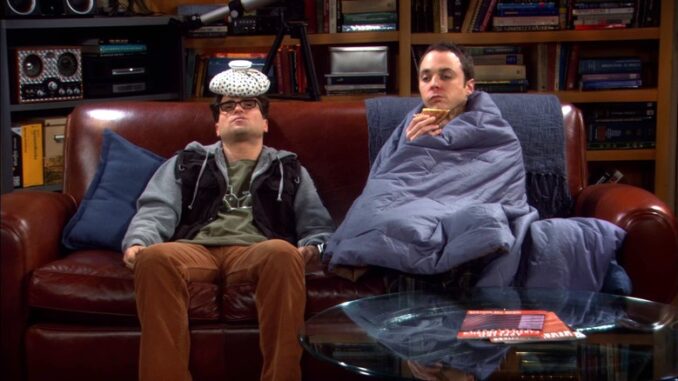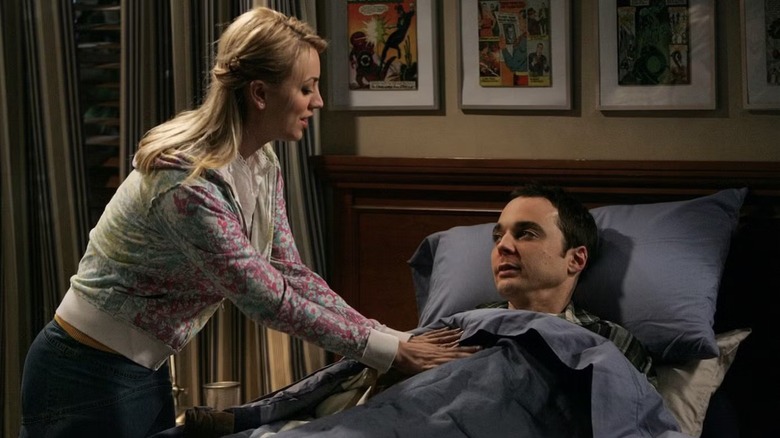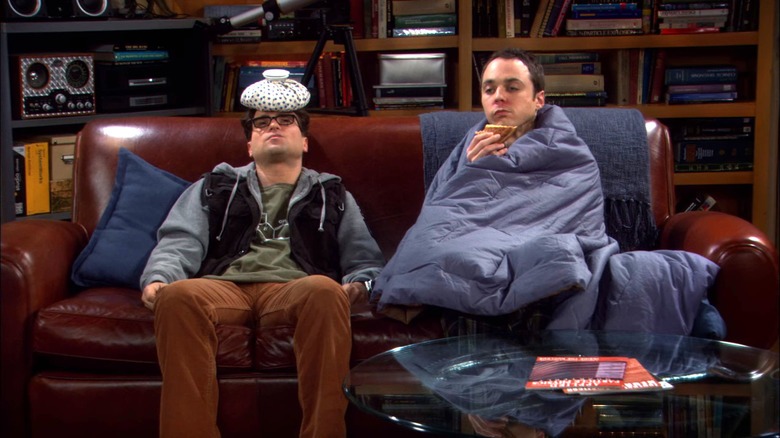
In the “The Big Bang Theory” episode “The Pancake Batter Anomaly” (March 21, 2008), Sheldon (Jim Parsons), the fastidious and often hypochondriac character, comes down with a severe cold, courtesy of Penny (Kaley Cuoco). His roommates flee the apartment, leaving Penny to care for him. Sheldon’s demands are peculiar, including a request for Penny to rub Vick’s VapoRub on his chest, which she begrudgingly does. He also asks her to sing a childhood lullaby called “Soft Kitty,” which annoys Penny but delights the show’s audience. The lullaby soon became a fan favorite and would feature in eight more episodes, making it one of the show’s recurring gags. It even crossed over into the spinoff series “Young Sheldon.”
As it turns out, the “Soft Kitty” lullaby is based on an actual Polish folk song, “Wlazł Kotek Na Płotek” (translated as “The Kitten Climbed the Fence”). The song has been part of Polish tradition since at least the 1850s, with lyrics by Oskar Kolberg and music by Stanisław Moniuszko. Over time, like many folk songs, its lyrics and melody evolved, especially as it spread to different regions.
In the 1930s, the song was adapted into English as “Warm Kitty” and included in a 1937 songbook titled Songs for the Nursery School, published by the Willis Music Company. The lyrics were attributed to a poet named Edith Newlin. This 1937 version is what got “The Big Bang Theory” into legal trouble. In 2015, Newlin’s daughters, Margaret Perry and Ellen Chase, filed a copyright infringement lawsuit against the show’s producers, alleging that the “Warm Kitty” lyrics had been used without permission.
The Legal Battle Over “Warm Kitty”

In their lawsuit, Perry and Chase argued that the lyrics of “Soft Kitty” played a significant role in Sheldon’s character development on “The Big Bang Theory,” yet their mother, Edith Newlin, was never credited or compensated. The plaintiffs claimed that the show had used a near-identical version of Newlin’s lyrics and had capitalized on the song for promotional purposes without their authorization.
However, the lawsuit faced significant challenges. The Willis Music Company, which published Songs for the Nursery School, claimed to own the copyright to the song and had legally licensed it to Warner Bros., the parent company of “The Big Bang Theory.” They argued that all usage of “Soft Kitty” was in accordance with copyright law. In 2016, the Willis Music Company posted on their website that they had worked with Warner Bros. to secure the rights for the song, noting that the show’s writers had slightly modified the lyrics to suit the series.
Perry and Chase maintained that their mother retained copyright over “Warm Kitty” and that Willis Music had no right to license the lyrics. They also objected to the song’s use in merchandise and marketing, which they believed went beyond the scope of any licensing agreements.
Case Dismissed

Despite their arguments, the case (Chase v. Warner Brothers Entm’t, Inc.) was dismissed in 2017. A report by Reuters indicated that the plaintiffs were unable to prove their legal ownership of the song’s lyrics. Court records showed that Edith Newlin had written the “Warm Kitty” lyrics at the request of author Laura Pendleton MacCarteney, who was compiling lullabies for the Songs for the Nursery School book. Newlin agreed, and the song was published with Willis Music holding the copyright to all the material in the collection. Although Newlin was credited in the book’s acknowledgment section, the copyright legally belonged to Willis Music.
Additionally, the melody of the song was considered old enough to have entered the public domain, meaning the show’s producers had not infringed on any musical rights.
A Tribute to Edith Newlin
Though the lawsuit did not go in their favor, Perry and Chase’s effort brought attention to their mother, Edith Newlin, who crafted the lyrics to “Warm Kitty.” While the melody may have originated from an old Polish lullaby, Newlin’s contribution is what made the song memorable for generations of children—and for millions of “The Big Bang Theory” fans.